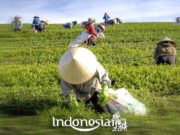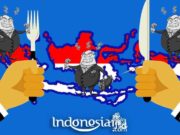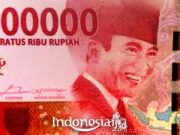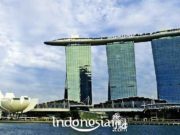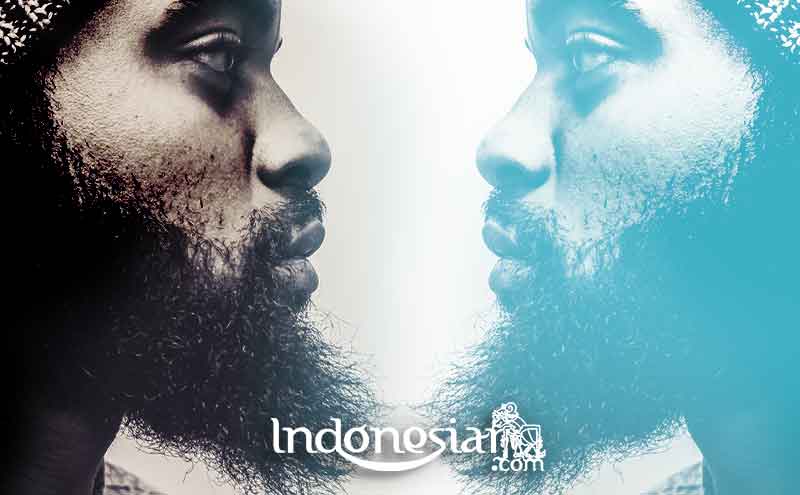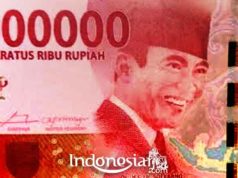Gorontalo is one of the few regions in Indonesia where the majority population is Muslim. Even though the population is predominantly Gorontalo, the Most Tolerant and Harmonious Muslim Area in Indonesia Muslim, there is a Hindu village nuance in Gorontalo. When you enter Banuroja Village, Randangan District, Pohuwato Regency. The houses along the road from the village entrance gate are equipped with a small family temple.
A large temple stands tall between the houses. The Hindu nuance ends in front of the school building or directly opposite the Banuroja Village Hall office. On one wall of the building is written, Pondok Pesantren Salafiyah Safi’iyah.
In one corner of the cottage, you can see the mosque building standing firmly. About 100 meters from the boarding school, stands the Gorontalo Protestant Indonesian Church and the Pentecostal Church.
The building of this place of worship is a reflection of the fact that various religions live in this village. Be it Hinduism, Islam and Christianity. They both tried their luck as transmigrants and lived in harmony in the area for many years.
Not only different religions, the villagers also have various ethnicities. Some came from Gorontalo, Java, West Nusa Tenggara, and Bali. Based on 2014 population data, the village is inhabited by nine tribes, namely Bali with 411 people, Java (282 people), Sasak or Lombok (281 people), Gorontalo (34 people), Minahasa (29 people), Sundanese (10 people), Bugis. (4 souls), Betawi (3 souls), and Batak (2 souls).
From the data of Banuroja Village in 2015, it was noted that the majority of the population in the village were mostly Muslims (613 people). They come from Javanese, Gorontalo, Sasak (Lombok), Sundanese, Bugis, and Betawi communities.
There are 405 Hindus. The majority of them come from Bali. Meanwhile, there are 35 Protestants and 3 Catholics. These Protestants and Catholics come from Batak and Minahasa. From that ethnic association they named Banuroja (Bali, Nusa Tenggara, Gorontalo, and Java).
This village, like other villages in Gorontalo, adheres to the majority of religions. Due to the majority of followers of Islam, this province is often nicknamed the Bumi Serambi Madinah (referring to the majority of its population who adhere to Islam).
Despite being multi-ethnic and religious, the people of Banuroja Village have never been hit by conflict. Its citizens live in harmony and peace. All problems that arise can be resolved with a kinship approach.
Banuroja Village Head Abdul Wahid acknowledged this. According to him, the key to maintaining harmony in Bonuroja is friendship (brotherhood). Good relations, especially between religious leaders and community leaders in Banuroja, must be continuously maintained.
Gathering is a key and powerful move to maintain communication and prevent the seeds of division or suspicion that could potentially lead to conflict.
“We need to be diligent in approaching community and religious leaders, communicating, sharing, and building a sense of brotherhood so that togetherness arises,” said Wahid.
In order not to create jealousy between residents, Wahid had another move. All ethnic groups will have representatives in the village structure.
Heterogeneity is also reflected in the organizational structure of the village. As the village head, Wahid comes from the Sasak tribe, while the Head of the Village Consultative Body (BPD) is from Bali.
Meanwhile, the Village Secretary is held by a native Gorontalo son named Febri Yahya. Meanwhile, the four hamlet heads in Banuroja come from Bali, Java, West Nusa Tenggara and Gorontalo.
In fact, according to Wahid, the previous village head was a Christian who in fact belonged to a minority group in the village. There is no obligation for the adherent or majority ethnicity in the village to appear as the village head. Whoever the village head, people from other ethnicities and adherents of other religions will accept it.
“Even though Christians are considered a minority in Banuroja, if there are people who deserve to lead as village heads, they will be elected. This is also a way to avoid social jealousy in Banuroja, ”said Wahid.
Abdul Hamid Tome in his article entitled “Grounding Pancasila: Efforts to Institutionalize Pancasila Values in Village Community Life (2020)”, said that the people of Banuroja Village are able to manage existing differences so that life runs harmoniously.
In the government administration system, said Abdul Hamid, the community can accommodate every existing interest based on deliberation.
The leader of the Salafiyah Safi’iyah Islamic Boarding School, the late KH Abdul Ghofir Nawawi, who died about a year ago, once said that before settling in the village which was originally called Manunggal Karya, he lived in Gorontalo in 1976. In 1982 the man from Cirebon, West Java decided to move and settled with transmigrants in the village.
In this new area, Ghofir lived with various ethnicities and religions. At that time, according to him, the conditions of transmigrants were very poor. Many are illiterate and communication between communities does not work well because they use their respective regional languages and their Indonesian language skills are very limited.
Because of that concern, the alumni of the Tebuireng Islamic Boarding School, Jombang, East Java then took the initiative to establish a small Islamic boarding school. Even so, Ghofir also remembered his teacher’s message to educate children in the village without inviting them to convert to Islam.
With the determination to educate the children of the transmigrants to be knowledgeable, he hopes that someday the children can help solve various life problems that their parents experience. The condition at that time, according to Ghofir, let alone think about education, even thinking about what to eat today is still difficult.
Ghofir remembered another message from his teacher. Namely, so as not to fight between religious believers and continue to struggle to improve the welfare of society. And that message keeps ringing in Ghofir’s mind.
That is why, while educating transmigrant children, the pesantren also invited transmigrants of other faiths to discuss ways to solve life’s problems. The reason was, at that time the land could not be planted, so that there was a feeling of despair and wanted to return to their respective areas.
At the pesantren, children are not only taught to read and write. However, they are also given various skills and business education such as cooperatives, canteens, convenience stalls and photocopying businesses. Three Hindus and one Christian are also teachers of the skill.
The students at these schools and pesantren also learned agribusiness such as raising cows, goats, chickens, freshwater fisheries, growing vegetables, rice, fruits, cassava, and cultivating other horticultural crops.
Not surprisingly, the pesantren attracted so many people. The students there not only come from the village, but also from North Sulawesi, Central Sulawesi, West Sulawesi and South Sulawesi. The number of students is more than 400 people, if added with school students, the number is 800 people.
The students are not only Muslim but also Hindu and Christian. This is unique, because actually there are other school options there, but they choose to send their children to the pesantren. “This is the fruit of trust and mutual understanding that we pioneered decades ago,” Ghofir once said.
Ghofir’s efforts to bring people from multiethnic and religious groups together are felt by followers of other religions. Djeek Detamor Gandey, Chairperson of the Imanuel Church in Banuroja Village, for example. According to him, residents of other ethnicities and adherents in the village often attend Ghofir’s taklim assembly.
In the assembly they discuss issues that can create divisions between them. “Vice versa,” said Jeek.
I Wayan Adha, a Hindu community leader in the village, agrees with Jeek. “This pesantren really helps development here. Not to mention the graduates who directly serve in our village,” he said.
For the hard work of caring for diversity for 39 years (1981-2020), on January 16, the Pohuwato Regency government together with the Rector of the University of Gorontalo declared Banuroja Village as Pancasila Village.
The declaration of the Pancasila Village is part of a joint effort to maintain the integrity of the nation amidst the onslaught of issues of radicalism, intolerance, and the construction of the “majority versus minority” identity. This declaration is also a gift for the 39th anniversary of the village.
Djeek Detamor Gandey tells about a unique tradition that is still being maintained there. The tradition in question is the relationship between religious followers on the religious holidays of each adherent in the village. When Muslims celebrate Eid al-Fitr, Hindus and Christians will flock to enliven the atmosphere.
Hindus send fresh fruit and Christians hand over a wide variety of snacks to Muslims. “The cakes that we distribute on Eid al-Fitr are cakes that we order from Muslims so as not to arouse suspicion,” he said.
The opposite is also true. If Christians or Hindus celebrate holidays, Muslims will visit them. The relationship was never absent during Christmas and Nyepi.
“Usually we bring them crops, like corn or oranges,” said the manager of the Salafiyah Syafi’iyah Islamic Boarding School KH Abdul Ghofur Nawawi, who is also the younger brother of KH Abdul Ghofir Nawawi.
Not only during religious holidays, the pesantren, which has a routine agenda of the grand recitation of once a month, is also attended by Hindus or Christians. Chairman of the Banuroja Village Consultative Body I Made Suardana.
“I do not question the material in the recitation. This is because what is being discussed is how to maintain harmony between followers and mutual tolerance, ”said Made, who is a Hindu. Are you interested in reading this article?





